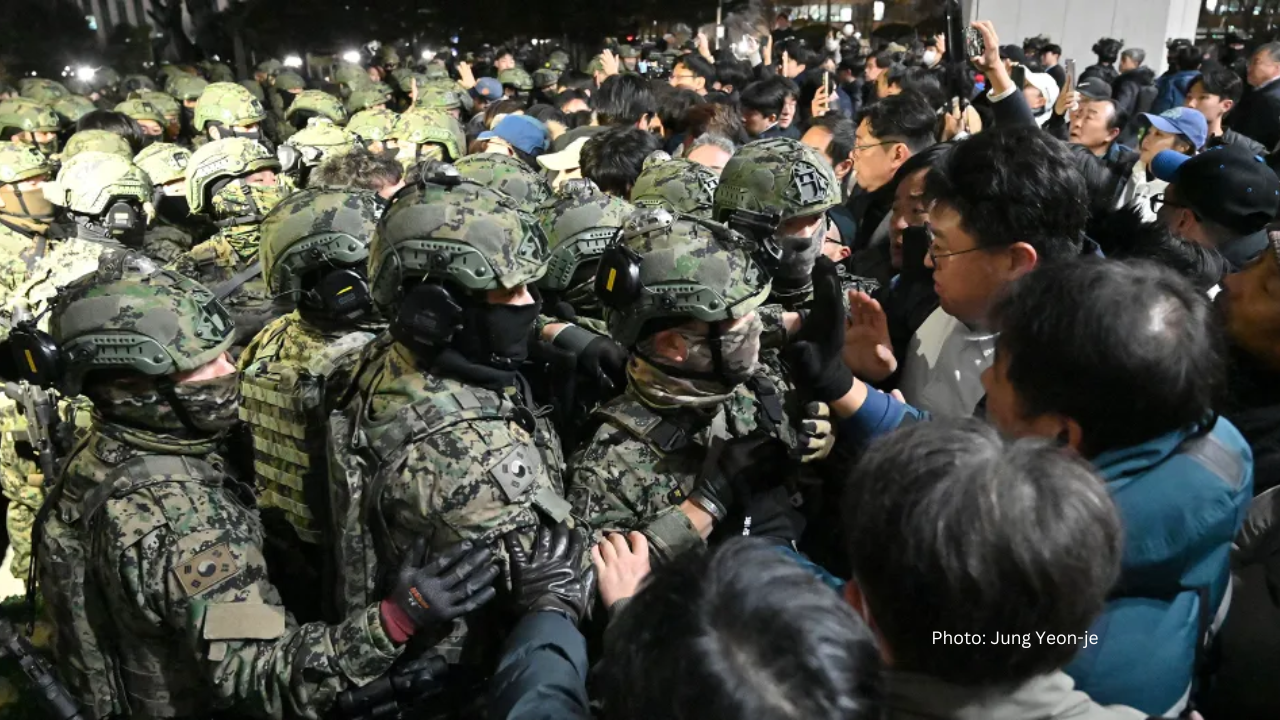Crisis in the Blue House: South Korea's Impeachment Drama
Nuzhat Tabassum | 12 December 2024
The world has been shocked by South Korea's three-president change in a single month. President Yoon Suk Yeol was impeached on December 14, 2024 due to his sudden declaration of martial law on December 03, 2024 by the South Korean parliament. Later, on the same day, Prime Minister, second-ranking official of South Korea Han Duck-soo, a conservative became the acting president after Yoon's powers and responsibilities were suspended. The Constitutional Court has 180 days to decide if they will remove Yoon from the office or if they want to reinstate Yoon in his position. A national election will be held within 60 days if Yoon is removed from office.
Even though his martial law lasted only for six hours. Nonetheless, it created political unrest, stalled diplomatic efforts and shook financial markets. President Yoon reasoned his martial law declaration that the opposition had taken control of the parliament that was impeding government operations. He also called the opposition party, the Democratic Party, ‘anti-state forces’ that has links to North Korea, though he provided no evidence for his bold claims. Yoon has yet to be formally removed from office. After Han Duck-soo took his position, he worked to stabilize the market and reassure important diplomatic allies. But he was soon embroiled in a political conflict with the opposition party. In order to improve justice and public confidence in the court's ruling on Yoon's impeachment, the DP demanded that Han immediately fill the three vacant justice seats at the Constitutional Court. Han refused to comply. For a court to remove Yoon from office, at least six justices must support the decision. A full nine-member bench is likely to increase the chances of Yoon’s removal, making it crucial for the court's entire panel to be reinstated. Critics argue that Han, despite his claim of refraining from appointing justices without bipartisan agreement, appears to align with Yoon’s supporters within the ruling People Power Party (PPP), who aim to see Yoon return to power. Acting President Han was impeached on 27 December 2024. Since South Korea became a democracy, this is the first time an acting president has been removed from office almost after 40 years.
Yoon has been a vital diplomatically in tackling shared concerns like China's aggressiveness, North Korea's nuclear threats, and vulnerabilities in global supply chains. Yoon did carry out a number of highly appreciated programs that improved his country's relations with the rest of the world, particularly the West. Under president Yoon, South Korea joined the Chips 4 Alliance for semiconductor supply chains and export controls, bolstered connections with Japan, promoted trilateral cooperation with the U.S. and Japan, and invested in U.S.-based electric car and battery manufacturing, and backed Ukraine. His impeachment and political attacks will now tarnish these and other initiatives, and Seoul is likely to make cuts elsewhere. Policymakers in the US, Japan, and Europe were baffled by his martial law farce. Just as Acting President Han was reassuring the world that South Korea has returned to normalcy, following the martial law incident, he was impeached, further destabilizing the political and economic situation of South Korea. With his impeachment, South Korea is facing a lack of good governance and credible leadership. Due to political turmoil, the South Korean won fell 0.53 percent to 1,475.4 per dollar. In stark contrast to several major indices, both in Asia and worldwide, the benchmark Kospi index of the stock market lost 1.5% and slid more than 1% to close at 2,404.77. The events after the declaration of martial law on December 3 have resulted in the biggest political crisis to affect South Korea since 1987. Due to the situation, Seoul is terribly unprepared to handle Donald Trump's return as president of the United States and all of the security risks he poses to Korea.
Currently, Finance Minister Choi Sang-mok is serving as the acting president. As soon as Choi took office, he gave the military orders to strengthen readiness to repel any North Korean aggressions and directed diplomats to provide assurances to key allies including the US and Japan. Some analysts speculate that Mr. Choi is less qualified to be an acting president than Mr. Han. It might make the country’s enemy exploit the internal turmoil.
Nuzhat Tabassum is a Program Assistant at CGS
Views in this article are author’s own and do not necessarily reflect CGS policy.
